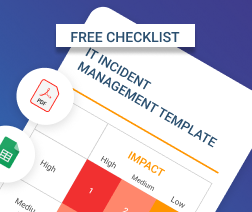What’s new this week in the news for MSPs? New tools for developers from Github co-founder; IBM doubles 27-qubit Falcon chip quantum volume; hurricane season checklist for MSPs; US passes Cyber Storm test, says CISA; Freepik suffers a data breach, losing 8.3m records to hackers; and Flash to reach the end of life in December 2020.
Let’s see what it’s all about.
New Tools for Developers from Github Co-Founder
Since Github co-founder Tom Preston-Werner left in 2014, he’s moved on to new projects that benefit application developers. He currently sits on the board at Netlify and knows how they use the Jamstack, a combination of API, JavaScript, and mark-up as a front-end development approach.
Much of his coding work at Github used Ruby on Rails, which is one thing that has led to his interest in building a full-stack application framework that could simplify application development using the Jamstack approach that he has observed at Netlify. His current project, RedwoodJS, springs from his work on developing this.
Preston-Werner’s fundamental belief is that software development represents an unlimited scope to find new ways to address common problems. This is the driving force that leads him to create solutions that address needs in the tech world. We can look forward to seeing more innovations for application developers from Preston-Warner.
Hear more in his interview with Stu Miniman on Cloud Native Insights by SiliconAngle.
IBM Doubles 27-qubit Falcon Chip Quantum Volume
IBM Corporation announced new progress in its goal to build a large-scale quantum computer. They say they have doubled their 27-qubit Falcon chip’s volume.
The quantum volume is used to measure quantum computer performance. The falcon chip has now reached a quantum volume of 64. This benchmark also means that IBM has successfully doubled its hardware quantum for the third year in a row, achieving its goal of doubling its hardware quantum every year.
According to IBM, “hardware-aware” optimizations that unlock more performance from the Falcon chip’s circuits are behind the quantum volume increase. Among the optimizations, IBM compiler software Qiskit received software improvements. Reducing the qubit noise, or interference that causes information loss and errors which decelerate quantum calculations also played a role.
Hurricane Season Checklist for MSPs
As we all know, hurricane season is in full swing, with Laura hitting Louisiana and Texas shores on Wednesday night. Coastal storms and hurricanes knock out electrical lines, leaving businesses and data centers out of commission for days, weeks, or even permanently. Be prepared to handle all kinds of disasters for your clients if you or they work in hurricane-prone areas.
Here are a few tips from Channele2e’s checklist for MSPs to ensure you are ready to support clients throughout the hurricane season:
Disaster Recovery
A few steps that MSPs should take:
- Make sure you have recent backups of all production machines
- For all production machines, assure that current backups are successfully sent to the cloud (or other DR sites)
- To confirm your ability to recover, verify recent functional screenshots of each production machine
Technology and People Continuity Checklist
When you know a hurricane is approaching and can potentially impact your area, continuity is critical. Make sure you have:
- Consecutive applications, off-site backup of data, and server images
- The capacity to restore IT services in the cloud or at a site sufficiently far inland to be untouched by the storm
- Issue website warnings to inform customers and partners about storm readiness and post-storm updates
Problem Solving for Your Clients
If a storm negatively impacts your clients or your business, here are a few questions to ask in order to help you resolve problems faster:
- What is the cause of the issue?
- Has a hardware part failed?
- Is there corruption in the operating system software due to an infection by viruses or malware?
- Was there a software update that had problems?
- Being prepared helps get your clients back up and running quicker. Be prepared and stay safe.
US Passes Cyber Storm Test, Says CISA
Since 2006, the US Department of Homeland Security’s Cybersecurity and Infrastructure Security Agency (CISA) has run a test known as Cyber Storm. It involves over 2,000 participants, ranging from private-sector owners and operators to state, federal, and local entities.
The test measures the nation’s cybersecurity preparedness and takes place in a setting where participants can discover and respond to coordinated cyberattacks in the same way as if they were real-world events. It analyzes incident response processes, procedures, and information sharing.
US federal cybersecurity agencies have frequently-issued warnings about the likelihood of attacks on the nation’s critical infrastructure. Most recently, an advisory was issued a month ago by CISA and the National Security Agency that strongly recommended that operators of essential systems take “immediate steps to ensure resilience and safety of US systems should a time of crisis emerge in the near term.”
Freepik Suffers Data Breach, Losing 8.3m Records to Hackers
According to Freepik, an SQL injection attack was carried out by hackers against the company’s website. They were able to steal password hashes and email addresses of 8.3 million users of Freepik and Flaticon.
Freepik has been quick to clarify that hashes are not passwords and cannot be used to log into the website. Of the 8.3 million users, only about half had password hashes, since many users have federated log-ins through Google, Twitter, or Facebook. Some 229,000 of the accounts had MD5 salted password hashes, which are easier to crack. For these users, the company reset the passwords and emailed the owners.
Freepik has since hired external security experts to do a full audit of internal and external security measures since the data breach used bcrypt to hash all user passwords.
Flash to Reach End of Life in December 2020
In July 2017, Adobe announced it would end Flash support and no longer distribute the Flash Player. Many didn’t take the news seriously and are already beginning to discover that the end is nigh. While in test mode, applications that require Flash attempt to download the needed files from Adobe and other sites. The failure to download and load these files results in a 2032 error.
Points to note about Adobe Flash end of life
- According to Adobe, they will remove everything Flash-related.
- Microsoft will send an “uninstall now” package via Windows Update, too. This last behavior can be managed via GPO.
Any internal applications that will have issues will need remediation, and the time to start is now.
That’s a Wrap for News You Might’ve Missed
I hope this update has been helpful. MSP360 is your resource for MSP news. Stay home, stay safe and healthy, and remember to check back next week for more highlights.






